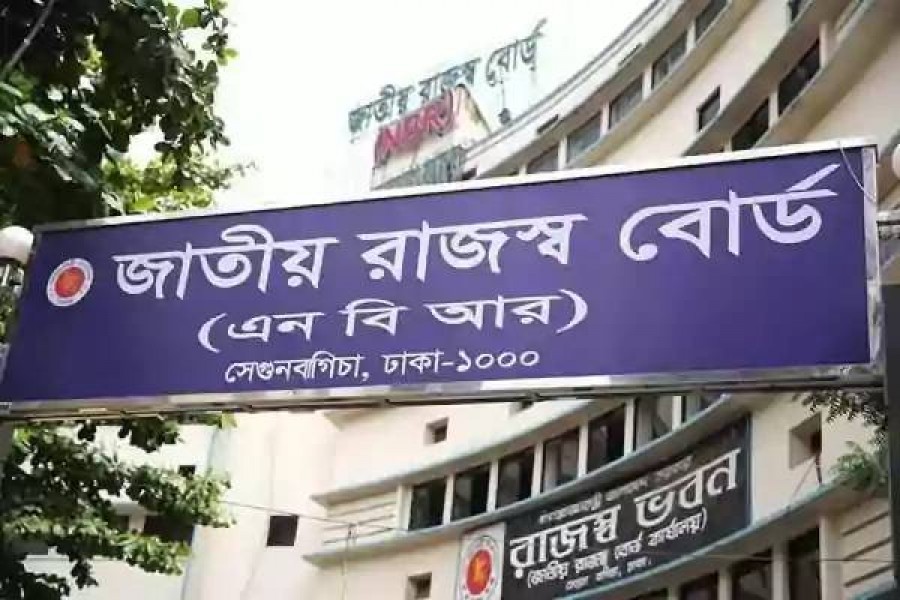That the members of the general public whose incomes are taxable lack the willingness to pay tax is a common complaint of the revenue collectors of the country. This is precisely for this reason from time to time, the National Board of Revenue (NBR) holds Income Tax Day as well as observes Tax Day to motivate people to pay tax. But the NBR chief's observation made about many government bodies', what he termed, 'anti-tax-payment attitude,' at a recent pre-budget view exchange meeting with the media is rather discomforting.
It is not hard to understand the common people's misgivings about tax collection given their not-so-pleasant experience since the colonial times. But then why should government organisations be apathetic about paying tax when the finance ministry itself is willing to allocate requisite fund for the purpose? Strangely though, far from being embarrassed about their 'anti-tax' mindset, the same government bodies, as could be gathered further from the NBR-media meet, are resentful when the tax authority does not entertain such pleas for tax exemption. Moreover, some government departments even declare tax benefits without the concurrence of NBR. Needless to say, such outlook on the part of any government office is unhelpful for the tax department's effort at fulfilling the annual revenue collection target. Even worse, it is a disincentive to the general public so far as the issue of motivating them to pay tax is concerned. Obviously, this problem of built-in resistance to the growth of revenue income within the government needs addressing first.
In this situation, while working to expand the tax net among the entire taxable income groups of society, the government should also empower the NBR so that it may get necessary cooperation from the government bodies concerned in this regard. Also, there is a lot of work to be done to streamline the NBR's own system so that it can have a clear picture about the actual number of taxpayers under its fold. Out of a total of 7.0 million holders of Tax Identification Number (TIN) under the tax authority, only 2.4 million, reportedly are real taxpayers, as they submit tax returns regularly. Obviously, the rest are occasional, or even, once-only, taxpayers. This necessitates clearing the database with the NBR and update it regularly, so that it is reflective of the actual number of people and organisations paying tax to the government at any point of time.
Thus, it is hardly surprising that Bangladesh's tax-GDP ratio at 8.0 per cent in FY 21 was below most of the South Asian countries. To compare, one may note at this point that India's record on this score was 10.2 in FY 21, Nepal's at 19.21 in FY 2019, while Sri Lanka's at 9.6 in 2020 despite the fact that the county's economy has been going through a big crisis in recent times. The tax-GDP profile of our next-door neighbours speaks volumes for the performance of Bangladesh's tax regime. This is definitely not helpful when the country is on its way to attain middle-income status by 2026. So, to improve things, the NBR's efficiency will require qualitative improvement through completely digitising the system of filing tax returns. At this point, the tax authority would do well to make the online tax return submission system simple and user-friendly to make it easily accessible to the common taxpayers.


